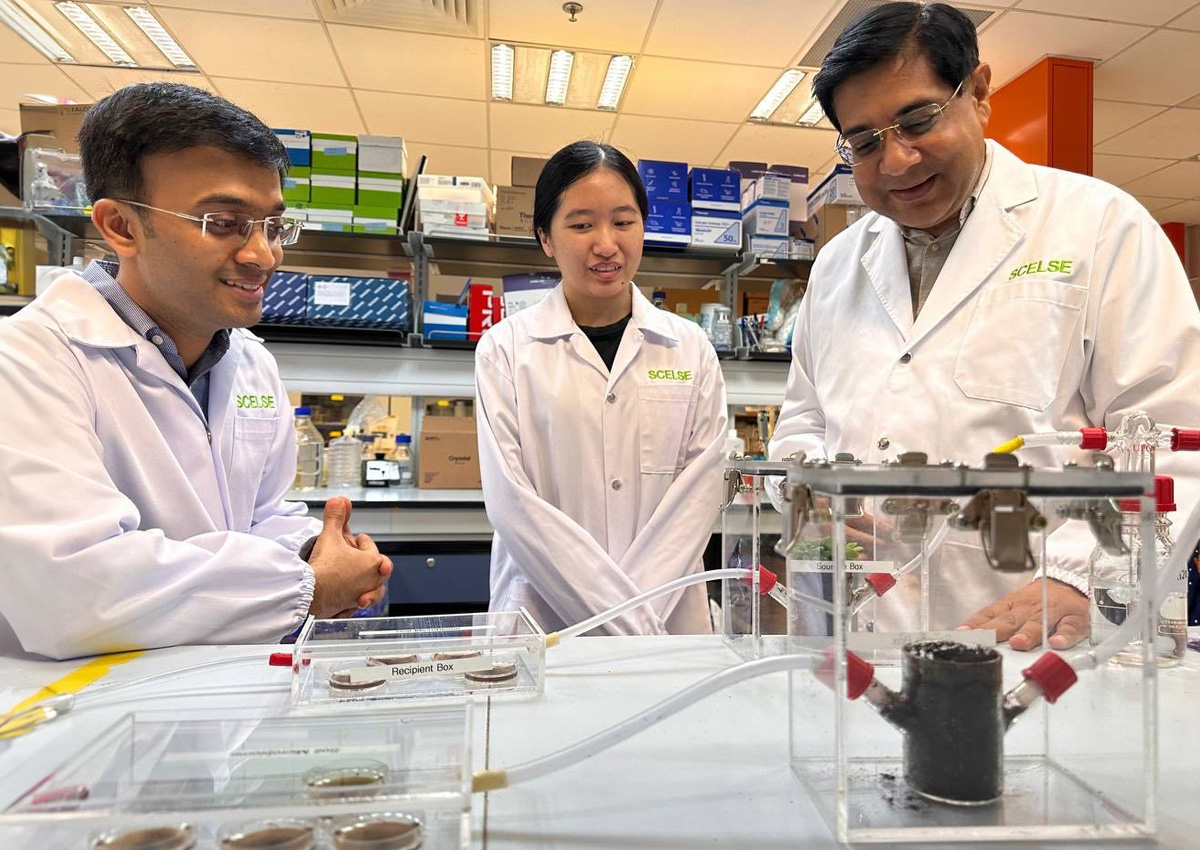
Scientists Uncover Plant Hormone that Boosts Plant Growth by 30%
January 10, 2024| |
Scientists from the National University of Singapore (NUS) and the Singapore Centre for Environmental Life Sciences Engineering (SCELSE) have uncovered agro-microbials that can enhance the synergy between crops and microbes, and ultimately improve crop yield and productivity.
In the study conducted over five years since 2018, the scientists discovered that the plant hormone methyl jasmonate (MeJA), a volatile organic compound typically released by plants above ground during periods of stress – served as a shared, possibly secret, language that allows the plant to communicate with the surrounding layers of microorganisms embedded in the soil.
The research team discovered that MeJA is released underground by the plant roots in a volatile form; volatile MeJA triggers and enhances the formation of biofilms in bacteria at a distance from the plant roots; and these bacteria in the biofilm release a different set of volatile compounds that can boost plant growth by up to 30%.
Agro-microbials encompass microbial communities associated with crops that serve critical functions of plant growth promotion, disease prevention, and nitrogen fixation. They also help to keep the soil fertile by breaking down organic matter, recycling nutrients, and creating humus to retain moisture. As a follow-up to their initial findings, the team will further investigate the exact chemical nature of the compounds released by the soil microbial environment that stimulates plant growth.
For more details, read the article in NUS News.
| |
You might also like:
- Research Shows Rice Enzyme OsUBC26 Vital for Blast Fungus Resistance
- Scientists Study Genes Involved in Triterpenoid Synthesis in Birch
- Study Reveals the Defense Roles of Soybean GmAFS Gene Against Nematodes and Insects
Biotech Updates is a weekly newsletter of ISAAA, a not-for-profit organization. It is distributed for free to over 22,000 subscribers worldwide to inform them about the key developments in biosciences, especially in biotechnology. Your support will help us in our mission to feed the world with knowledge. You can help by donating as little as $10.
-
See more articles:
-
Plant
- GAIN Report Presents GM Crop Updates in India
- Microalgae Protects Rice From Bacterial Blight
- Plasma-Activated Water Boosts Germination and Growth of Mung Beans
- First-ever Engineered Plant Microbiome Protects Crops Against Diseases
- Researchers Pinpoint Key Gene for Cotton Yield and Fiber Quality
- Scientists Uncover Plant Hormone that Boosts Plant Growth by 30%
-
Food
- Study Highlights Factors Affecting Public Acceptance of GM Food Crops in Ghana
- IRRI Develops SpeedFlower, the First Speed Breeding Protocol for Rice
-
Read the latest: - Biotech Updates (January 21, 2026)
- Gene Editing Supplement (January 28, 2026)
- Gene Drive Supplement (February 22, 2023)
-
Subscribe to BU: - Share
- Tweet

